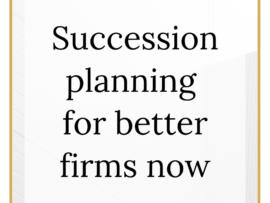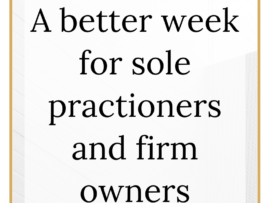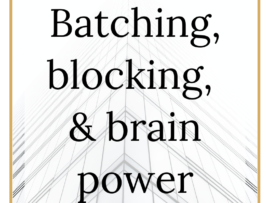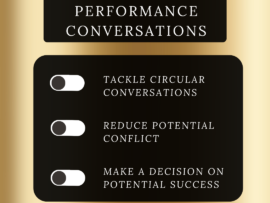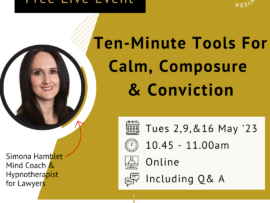Perfectionism Talk – Top Takeaways
0 CommentsTop takeaways from a recent talk on Perfectionism
Having witnessed perfectionism in others, explored where it might impact me, and coached individuals dealing with the real challenges of Perfectionism. This was an interesting session to hear other people’s views and experiences of it, and be able to share some of the knowledge imparted during the last EMCC (European Mentoring and Coaching Council) workshop hosted by me with speakers Nicola Arnold and Sanela Lukanovic.
Here is a summary of some of the key points shared from the evening:
Perfectionism – 5 Things to Know About It
- Perfectionism is often misunderstood as a badge of honour. It is often confused for the healthy striving for excellence rather than the the unhealthy shield perfectionism is used for. It is a heavy weight carried by many. Not only is perfect [ie 100%] by default unattainable, even if you reached (in theory) what you might have considered 100%, the bar would only be moved further out by you to ensure it remained unobtainable.
- Perfectionism is where the external is given prominence. Often based in shame. It is where what others think of us is given priority as to why and how we do things. Where perfectionism is used, it is held up as a barrier between us and others, people don’t get to see the real us. We hide behind it. Further, whilst negative feedback penetrates the barrier, and validates our shame, positive feedback isn’t let through or accepted as valid. One piece of negative feedback can impact on our whole self worth.
- We might use perfectionism as a shield, armour, or barrier in some circumstances and not in others. It may be that it comes up at work, but not at home, or with some places, or people, and not with others. Our vulnerability will show up in different ways for different reasons.
- Healthy striving for excellence comes from a positive place of mindset and internal source. Whereas perfectionism’s best friend is self-criticism. It is external based, and can have unpleasant emotions attached to it. Yes, being known as the reliable pair of hands, an expert, someone who double checks the facts, or the person with attention to detail, can be a positive depending on your line of work. It is where it tips over to an unhealthy place that it comes from a different source.
- As with other armours, perfectionism is a symptom (not the cause) of one of our ‘I am not good enough buttons’. As such it often shows up in places where we feel or rather perceive that ‘we do not belong’ as more of those ‘buttons’ are pressed (not pretty enough, clever enough, fast enough, old enough, young enough, rich enough, qualified enough etc).
Perfectionism in the Workplace – 3 Ways it Impacts on Teams
- Creativity is stifled and a toxic culture can emerge. People feel unable to make mistakes at work, since mistakes are viewed as unacceptable by leaders who are perfectionists, in themselves and others. This stops those working in their team or business from being willing to try new things, express new ideas, or share thoughts and opinions. It can also create a culture of blame or hiding mistakes and errors. Neither of which is productive for businesses and organisations.
- Delegation is avoided and feedback is challenging. Work is often criticised, positive feedback is limited, and micro-managing often occurs. Perfectionists can often seek to have control, to avoid failure, or due to lack of trust in others, which makes delegation difficult. That control also means that there can be ‘rules’ around exactly how things are set out, expressed, or written. This can result in reports, emails, letters of others are often rewritten unnecessarily to match those rules. Given that the expectation of others is high, and that expectation is often unattainable, positive feedback is naturally difficult to impart.
- Productivity and prioritisation decreases. Since all areas of work need to be perfect, it can be extremely difficult to prioritise as all is treated with equal importance. Likewise the worry of negative consequences or feedback can stop all action. Between these challenges, and the emotional impact, this can create significant stress. It can also mean work is put off, not completed, or not started at all (as it will never be good enough). As such productivity and prioritisation decreases, which can also impact on deadlines. Likewise long working hours can result where work is repeatedly tweaked, reviewed, rewritten before finally sending it off (if at all).
Final thoughts
Perfectionism continues to impact on many people. The significance of that impact is person and situation dependant.
As with all self-development, awareness is the first step to creating a change, before moving through to do the internal work. This may include reflecting, exploring, and working through aspects of judgment, shame, self-worth, healing wounds, confidence, peers, and understanding the significant impact of past experiences, rules, and stories that might have served us once but are now in our way (before letting them go or rewriting them). If you would like some help doing some of that work, then please do get in touch to find out more about coaching for you.
If you are interested in perfectionism, you might also find this article written a while ago useful as well: https://simonahamblet.com/blogs/eight-signs-of-perfectionism-five-ways-to-make-a-change/
As always, I offer an initial complimentary coaching session to find out if coaching at this time, and with me, works best for you. Contact me on [email protected]
You can also find out more about Sanela and Nicola’s work, included that based on Dr Brene Brown’s, work here, and follow me on social media to hear about more events coming up (you don’t need to be a member to attend). Thank you ladies for a most insightful evening.


